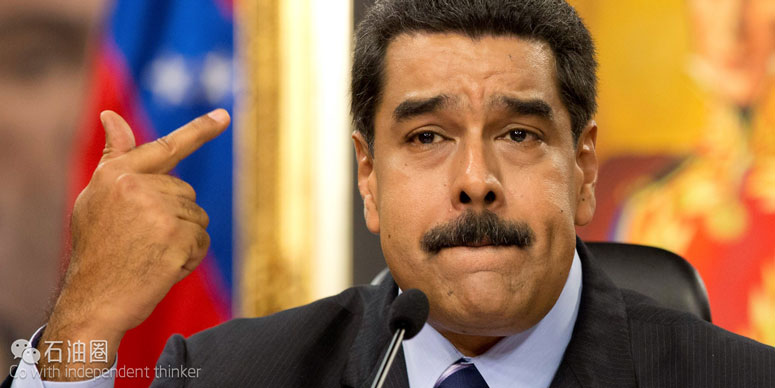
委内瑞拉国内正处于史上最严重的经济危机中,并已经演化成了一场政治和人道主义灾难,石油价格的崩溃截断了该国唯一的出口收益来源。委内瑞拉的“末日”已经来了吗?油价回暖会不会使委内瑞拉扭转大局?石油大国们该怎么办?
通货膨胀 人民穷困潦倒
委内瑞拉正面临着历史上最严重的经济和人道主义危机。该国经济受到了持续24个月低油价的重创,预计将在2016年底萎缩10%,可能是过去13年来最大的经济倒退。据国际货币基金(IMF)的数据显示,委内瑞拉通货膨胀已超过700%;有其他分析师表示,该国通货膨胀已达1000%。
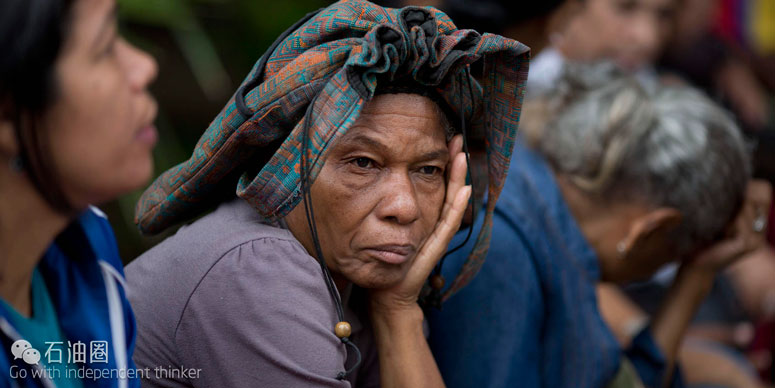
近期,数十万抗议者9月1日走上委内瑞拉首都加拉加斯的街头,要求罢黜总统Nicolas Maduro。“我们要打败饥饿、犯罪、通货膨胀和腐败,这十七年里他们什么都没做,他们的时间已经结束了”,一位抗议者义愤填膺地说道。当前,委内瑞拉人的日常生活面临着多重困境:持续升高的犯罪率和腐败率、每天停电、80%以上的药品和食品短缺、甚至连最基本的救命医疗用品,如抗生素都没有……研究表明,以目前的食品价格,人们需要20倍最低工资才能购买到基本食品。
西蒙•波利威尔大学(Simon Bolivar)的生活水平评估显示,将近90%的委内瑞拉人买不起足够的食物。即便那些有钱的人,在超市货柜空空如也的情况下,也无法找到基本生活品。为了应对这个问题,年初马杜罗政府设立了一个挨家挨户的分配机制,以防止物品流入黑市,但效果并不理想。
当前的原油价格有所回暖,布伦特原油价格在50美元/桶上下波动,然而即使是在两年前布伦特原油的交易价为102美元/桶的高油价情况下,委内瑞拉也早已出现了经济问题。所以即使原油价格回升,高油价也不能解决委内瑞拉的经济、人道主义和政治危机。
油价崩盘 石油生产全面滑坡
委内瑞拉96%的外汇收入来自石油工业,随着油价崩盘,收入已经减少了50%。而且不止是收入减少了,石油产量也下降了许多,这对委内瑞拉来说简直是雪上加霜。
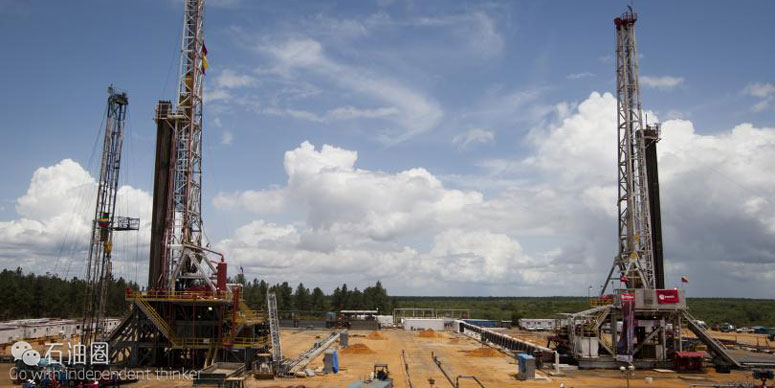
另外,由于从国营委内瑞拉石油公司(PDVSA)很难获得回款,一些油服公司今年已在委内瑞拉暂停或减缓了生产经营活动。基于同样的原因,委内瑞拉的钻井承包商也削减了钻井计划,这恐将进一步造成委内瑞拉原油减产。
活跃钻机的数量被业内认为是预测未来产量的最佳指标。意大利石油和天然气承包商Saipem SpA公司CEO称,该公司4月份暂停了委内瑞拉89%的钻机作业量,即28台钻机中的25台;2016年6月28日,贝克休斯的数据显示,今年5月份委内瑞拉的石油钻井平台数量从69台下降到了59台,7月份活跃钻机数从71台降至了49台。由于无法收回服务费,其他公司如斯伦贝谢和哈里伯顿也在减少在委内瑞拉的作业活动。
据莱斯大学休斯顿校区贝克研究院拉美能源政策中心研究员Francisco Monaldi博士称,自1998年以来,委内瑞拉的石油产量已经减少了75万桶/天,仅2016年上半年出口量就减少了25万桶/天。迈德利环球顾问公司(Medley Global Advisors)高级常务董事Luisa Palacios称,与2015年平均水平相比,委内瑞拉的原油出口量在2016年6月已经下降了超过30万桶/天。
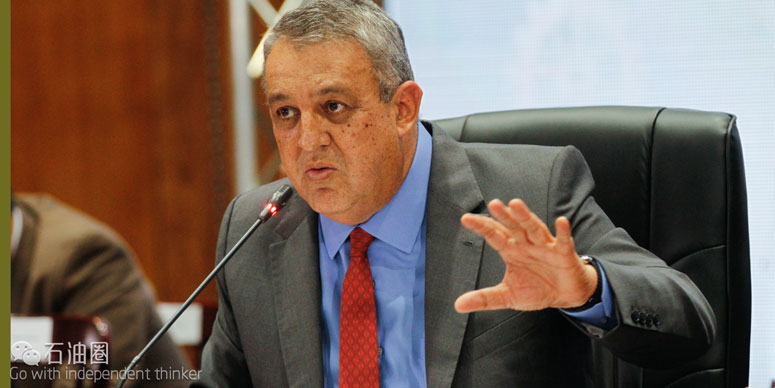
PDVSA正在与油服公司进行谈判,想把未支付的服务费转为金融资产,即实现资产证券化过程。委内瑞拉石油部长Eulogio Del Pino 上月表示,PDVSA已经与威德福和哈里伯顿签署了融资协议,而且与斯伦贝谢也即将达成协议,这也有利于扩大斯伦贝谢在OPEC国家的业务量。Del Pino说,“这种机制可以使商业债务转为金融债务,通过财政收益改善现金流持有工具,以应对低油价的窘境。”但声明将这些本地业务描述为“发展中的计划”,而且得到了“主要的钻井和服务公司”的支持,但并未提及公司的具体名字。
入不敷出 还了外债苦了国人
今年8月16日,Monaldi博士在委内瑞拉加拉加斯联合电台César Miguel Rondón的广播节目中称,近些年来,PDVSA的债务已经从30亿美元增加至超过430亿美元。
即使油价回暖,委内瑞拉国内的经济状况还是非常复杂。PDVSA没有现金,其正在努力偿还债务,而且姑且不说在新业务方面的投资,石油行业本就需要巨大的投资以维持产量。
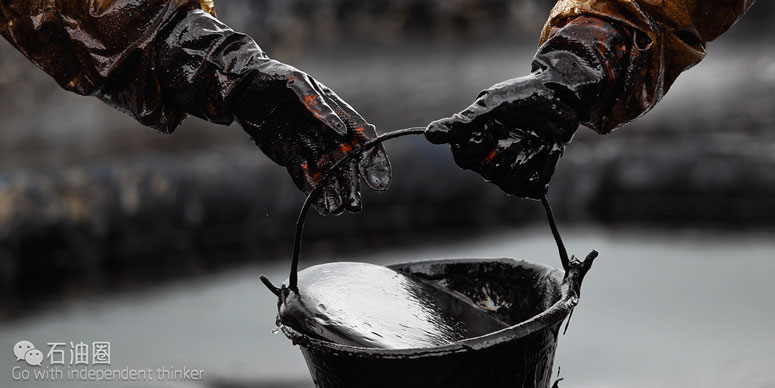
就目前而言,委内瑞拉政府表示,即使民众生活状况日益恶化,也要优先偿还国际债务。宁愿把越来越稀有的资源用于偿付国际债主,也不顾在街头挨饿的人民,这似乎是一个荒唐的行为,但对于一个95%的收入都依赖石油出口的国家来说,政府肯定也担心债主诉诸法律而坐上国际法庭的被告席,这可能是不得已而为之的选择。而且,违约的成本可能会比偿还债务更高。
此外,拖欠债务将给政府债券造成更多的负面影响,将使政府在重新协商信贷额度时处于不利地位。其实,到目前为止,委内瑞拉仍然是有偿付能力的。然而,由于政府的错误政策,这一问题没有得到很好的解决。
在石油行业如此低迷的当下,作为一个对石油依赖度很强的国家,委内瑞拉必须从过去的错误中吸取经验教训,并需要进行大量的改革,尽快摆脱对石油的过分依赖,以使国家走上正确的道路。其他石油大国也该加紧转型的步伐,以防委内瑞拉的悲剧在自己国家重演。
作者/Luis Colasante 译者/白小明 编辑/李倩
Venezuela is facing the worst economic and humanitarian crisis in its history. Venezuela has been hit by the 24 months collapse in oil prices. Its economy is expected to shrink 10 percent at the end of 2016, the biggest contraction in the last 13 years, while inflation has reached more than 700 percent according to the International Monetary Fund (IMF). Other analysts say that inflation has already reach 1,000 percent.
Venezuelans are living day-by-day facing a very complicated situation with rising crime and corruption rates, daily electricity blackout, medicines and food shortage (more than 80 percent). Venezuelans can’t get even the most basic lifesaving medical supplies as antibiotics.
On Monday 22th August 2016 Brent oil traded around $49 a barrel, but two years before Brent was $102 a barrel, and even then Venezuela was already having economic problems. Even with a recovery in crude, higher prices are unlikely to solve the economic, humanitarian and political crisis.
In Venezuela 96 percent of foreign currency earnings come from oil industry and with the collapse of the oil prices the income has fallen more 50 percent. But in addition to declining revenues, oil production has also dropped, doubling the pain for Venezuela.
The problems could grow worse. Several oil service companies suspended or slowed operations in Venezuela this year due to difficulties in obtaining payment from the state-run oil company, Petróleos de Venezuela (PDVSA). Contractors have cut back on drilling in Venezuela amid rising unpaid debt, which threatens to take Venezuela’s output down even further.
On June 28th 2016, Baker Hughes reported that the number of oil rigs in Venezuela dropped from 69 to 59 in May of this year. The CEO of the Italian oil and gas contractor Saipem SpA said that in April the company had suspended 89 percent of its operation rigs in Venezuela (25 of its 28 rigs). Other companies as Schlumberger or Halliburton Co are reducing their activities in Venezuela because of unpaid services bills. Venezuela’s active rig count, a good indication of future production, fell from 71 to 49 in July according to Baker Hughes, the lowest since the end of 2011.
Since 1998, oil production in Venezuela has been reduced by 750,000 barrels per day, with output falling by 250,000 barrels per day in the first half of 2016 alone, according to Dr. Francisco Monaldi, a fellow in Latin American Energy Policy at the Baker Institute at Rice University in Houston. Luisa Palacios, a senior managing director at Medley Global Advisors LLC, said that exports in Venezuelan crude has fallen by more than 300,000 barrels per day in June 2016, compared with 2015 average.
PDVSA is in talks with oil services companies to turn unpaid services into financial instruments, a process known as securitization. Venezuela’s oil minister Eulogio Del Pino last month said that PDVSA had signed financing agreements with Weatherford International Plc and Halliburton and was close to a deal that would allow Schlumberger to boost its presence in the OPEC nation. “This mechanism enables to trade commercial debt for financial debt, improving cash flow holding instruments with financial return, in order to manage the low oil price environment” said Del Pino. These mechanisms allow the contractors to continue local operations. The statement describes these operations as a “plan in development” that was supported by “important drilling and services companies,” without naming which ones were involved in the discussions.
In recent years PDVSA’s debt has increased from $3 billion to more than $43 billion, Dr. Monaldi said on César Miguel Rondón’s radio program from Union Radio, Caracas Venezuela in August 16th this year.
Even if oil prices increase, the situation is very complicated for Venezuela’s economy. PDVSA has no cash, it is struggling to pay its debts and the oil industry needs huge investments to keep oil production from falling, leaving aside investments in new operations.
For the moment the Venezuelan government has prioritized meeting debt payments even if that means deteriorating conditions for its populace. It seems like an odd choice, but for a country that depends on oil exports for 95 percent of its revenue, the government is certainly concerned about exposing itself to legal actions by bondholders in international courts. Also, the cost of default could be higher than the payment of his obligations.
Furthermore, the non-payment will add a more negative image for the government bonds, which puts it in uncomfortable position to renegotiate any new lines of credit. Venezuela, so far, is still solvent. However, this issue is badly managed by the government with the erroneous policies. Venezuela must learn from past mistakes and needs massive reforms to put the country in the right direction.
未经允许,不得转载本站任何文章:
-

- Linda
-
石油圈认证作者
- 毕业于南开大学传播学专业,以国际权威网站发布的新闻作为原始材料,长期聚焦国内外油气行业最新最有价值的行业动态,让您紧跟油气行业商业发展的步伐!


 石油圈
石油圈




